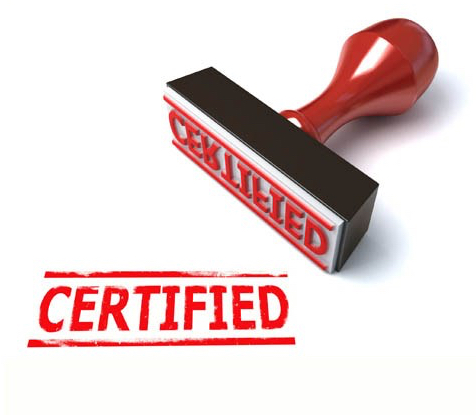PORTAAL is where you want to be if you need a certified translation, a legalisation or interpretation.

So what is a certified translation?
A certified translation (also called a sworn translation) is a translation accompanied by a signed statement attesting to the translation’s accuracy and completeness to the best of the translator’s knowledge and ability. In Belgium, a certified translation must be carried out by a translator who has been certified by the court. The court certifies a translator based on his or her education and experience. The document then goes on to be legalised by the court in which the certified translator was sworn in.
Certified translations are required for any official document in a foreign language that an official body requests be translated into one or more of the national languages.
A certified translation guarantees that the translation produced is a faithful representation of the original text.
How to send PORTAAL your official documents?
1. By e-mail:
Scan your documents, take a snapshot, or send us a Word-friendly copy and email it to info@por-taal.be. That’s the fastest method.
2. By post:
Send a copy of your documents to: Vertaalbureau Portaal, Dendermondse Steenweg 42, 9100 Sint-Niklaas.
3. Drop by in person:
You can also make an appointment by e-mail (info@por-taal.be) or by telephone (0478 050 815) to hand-deliver your documents to one of our offices (Sint-Niklaas, Geraardsbergen or Ghent). Appointments are also possible after office hours or at the weekend.
Do I need to visit one of your offices to arrange for a legalised translation?
You’re always welcome, but it’s not a must. If you have a busy schedule or would prefer to avoid the hassle of extra travel, you can e-mail us a scanned copy of your document. We’ll take care of the translation and legalization. Once it’s done, the certified and/or legalised translation will then be sent to you by post.
Quality, speed and discretion
Portaal works with highly-qualified translators who have been certified by the court. Quality, speed and discretion are their top priorities. All your legalised documents will bear the official seal of the Court of First Instance.
Examples of official documents
Birth certificates, marriage certificates, diplomas for study or work abroad, certificates of good conduct and character, divorce certificates, adoption files, death certificates, driving licences, proof of nationality certificates, extracts from the criminal record, payslips, single status certificates, medical certificates, attestations, judgments and rulings, notarial deeds, summons, articles of association, contracts, etc.
